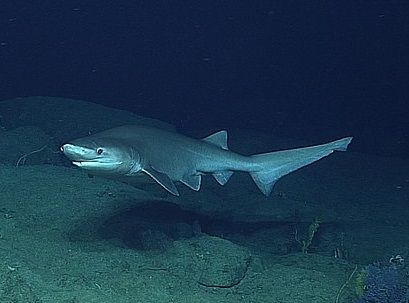A Danish fisherman made the catch of his life in December last year – without knowing it.
Tobias Konnerup reeled in a fish of almost 150 kilos in the sea off Thyborøn in north west Jutland but it was only when he contacted an expert at Copenhagen’s Natural History Museum that he found out how unique his prize was.
READ ALSO: Massive shark caught off Danish coast
Konnerup’s fish turned out to be a sixgill shark, one of the world’s largest carnivorous sharks, and it is estimated that this is the first time ever that it has been caught in Danish waters.
Just a baby
Although the fish was around 2 metres long, it was still small for its size. This type of shark can easily weight up to 1,000 kilos and be between five and six metres long.
Even though sixgill sharks eat both seals and dolphins, it is still safe to swim in the North Sea – they mainly stick to deep water and are judged not to be dangerous to people.
But take care anyway …
Nonetheless, “sixgill sharks have deadly, serrated teeth that can cut a seal in two, so I would be a little hesitant to swim around with one,” Henrik Carl, a member of staff at the Natural History Museum, told TV Midvest.
The shark was dead when Konnerup caught it so he and his companions took some photos as evidence and threw it back into the sea.
According to DR this brings the number of documented shark catches in Danish waters up to 14 different types.















